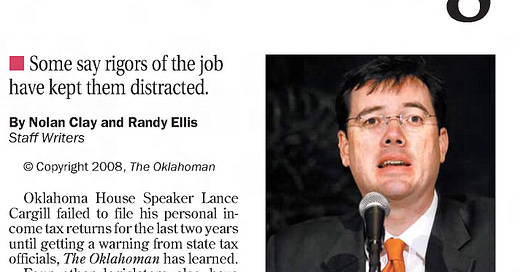The Rise and Fall of the Youngest House Speaker: Will History Repeat Itself?
For longtime observers, it feels like Groundhog Day in the Oklahoma House of Representatives.
It’s been a long time since the Oklahoma House of Representatives experienced "freedom month." In fact, the vast majority of its members, due to the unprecedented length of the Imperial Speakership of Charles McCall, have never experienced a freedom month before. Understandably, this makes for an exciting but alien experience for most.
Freedom month in t…
Keep reading with a 7-day free trial
Subscribe to The Oklahoma State Capital to keep reading this post and get 7 days of free access to the full post archives.




